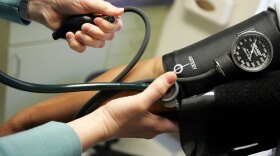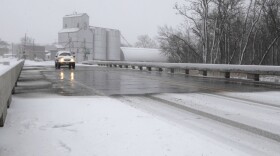
Alan Yu
Alan was a Kroc Fellow at NPR and worked at WNPR as a reporter for three months. He is interested in everything from health and science reporting to comic books and movies. Before joining us, he studied journalism at Northwestern University, and worked at Psychology Today, NPR's Weekend Edition, and WBEZ in Chicago.
-
Part of a national trend, medical residents at Penn Medicine in Philadelphia push to form a union to demand better working conditions and higher wages. Child care is an important issue for many.
-
Most preventive medical care that can't be handled via telehealth has taken a back seat in recent months, but that's starting to change. Here's what to ask when you schedule an in-person appointment.
-
Emptier grocery store shelves are helping to cultivate a growing interest in home gardening.
-
While the seaweed has a lot of things going for it in terms of nutrition and climate friendliness, the lack of infrastructure to process it and people's tastes have not been quick to adopt it.
-
American men face higher rates of suicide than women and higher rates of incarceration. In the age of #MeToo, some men are turning to each other to build healthy esteem that builds up others too.
-
Leah Penniman's new book teaches farming to address issues such as racism, health disparities and food access. She also traces some farming technologies back to their widely unknown African roots.
-
In a planned upgrade of Apple's operating system for iPhones, the Health app will include health records, so people can take detailed, personal health information anywhere.
-
More than nine of 10 farm owners in the U.S. are white. A movement to change that is selling farming to people of color as a healthy lifestyle — and a way to fight discrimination.
-
Researchers are looking for alternatives to salt or harmful chemicals, including using concrete that can safely conduct electricity and heat road surfaces to keep them clear of ice and snow.
-
Digesters convert livestock manure into electricity. Farmers can use it to power their operations or even sell some back to the grid. But some have found the technology too pricey to maintain.










